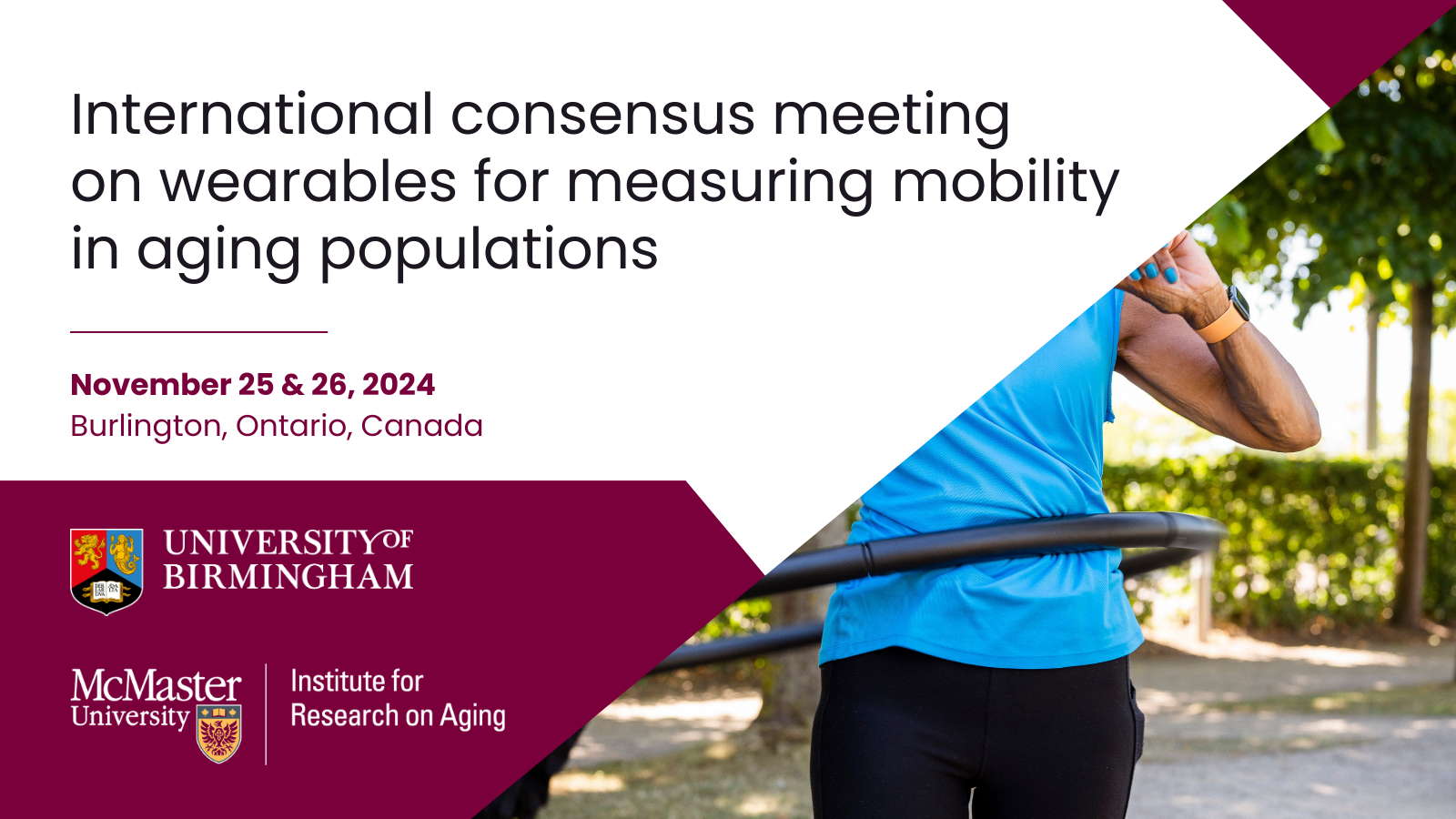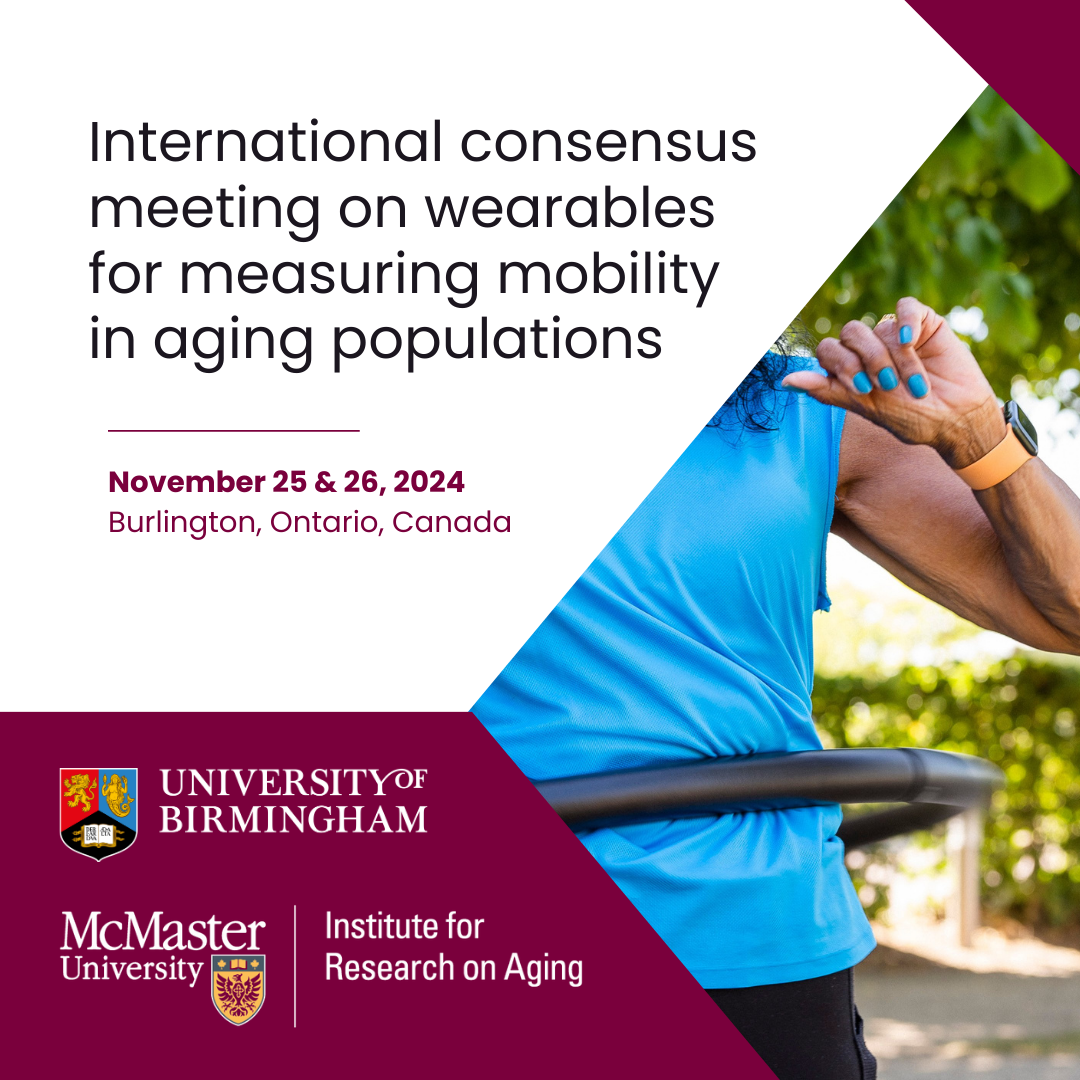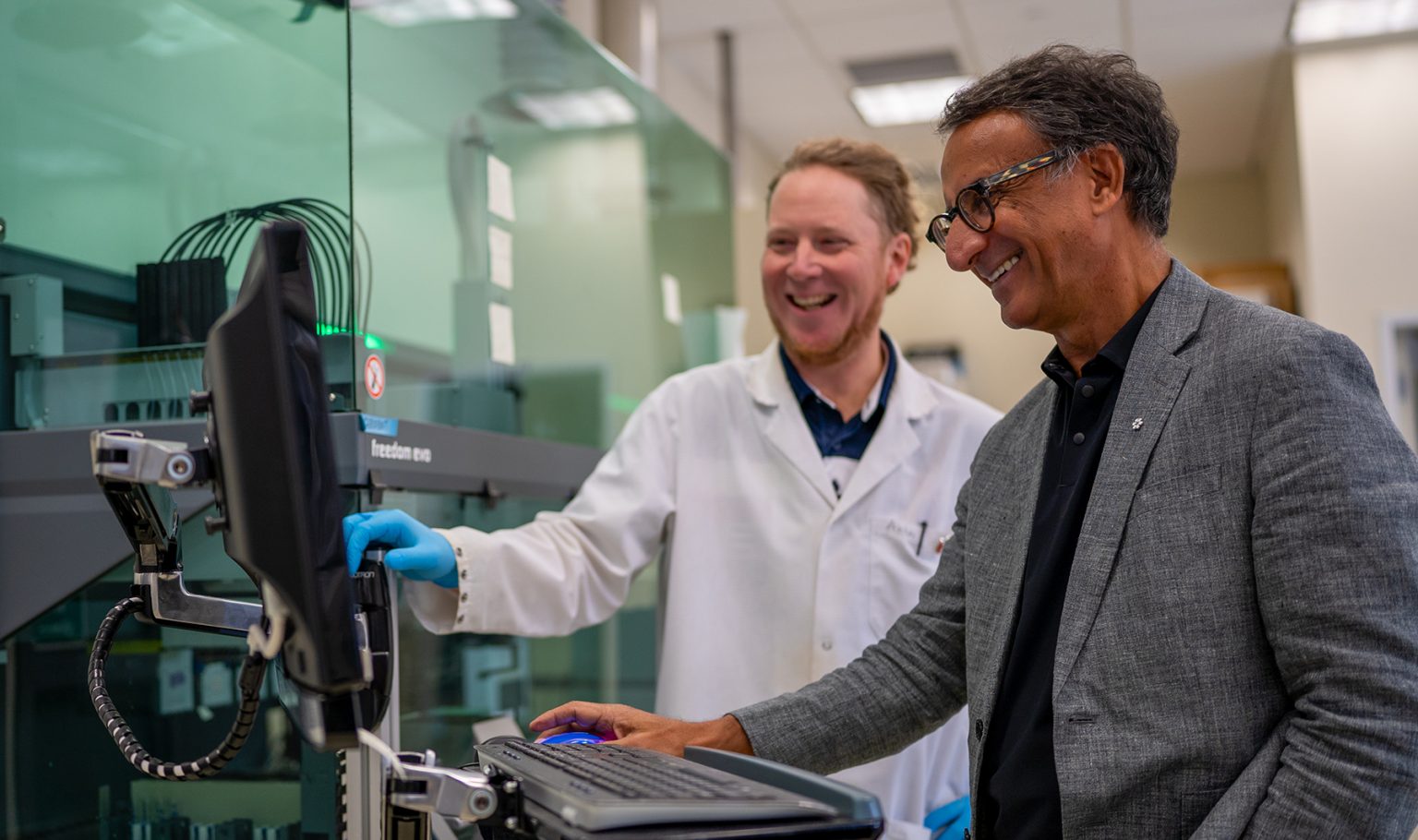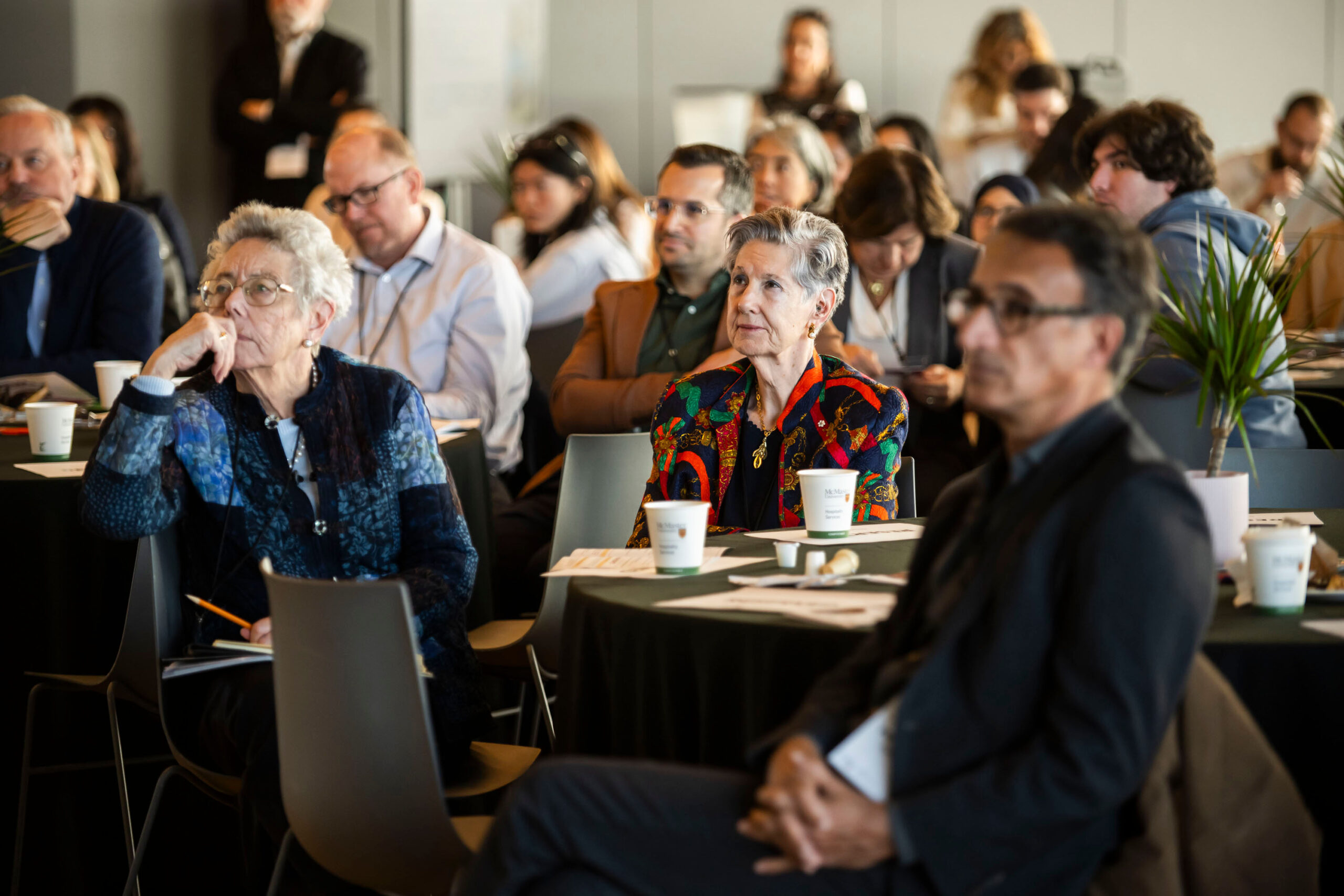Wearable devices, such as fitness trackers and smartwatches, have the potential to revolutionize our understanding of the aging process by providing valuable insights into older adults’ health and well-being through movement data.
In late November, the McMaster Institute for Research on Aging (MIRA) hosted the ‘International Consensus Meeting on Wearables for Measuring Mobility in Aging Populations,’ in Burlington, Ontario. This landmark event gathered international scholars to develop standards to guide the use of wearable technology in research of aging populations, and to produce an international consensus statement covering critical metrics for evaluating late-life mobility with wearables and optimal methods for data collection and analysis of mobility data in older populations.
Director of the MIRA | Dixon Hall Centre, Marla Beauchamp is a leading researcher in the use of wearables to monitor the mobility of older adults. Dr. Beauchamp led this initiative alongside University of Birmingham’s Afroditi Stathi, Professor of Physical Activity and Community Health in the School of Sport, Exercise and Rehabilitation Sciences.
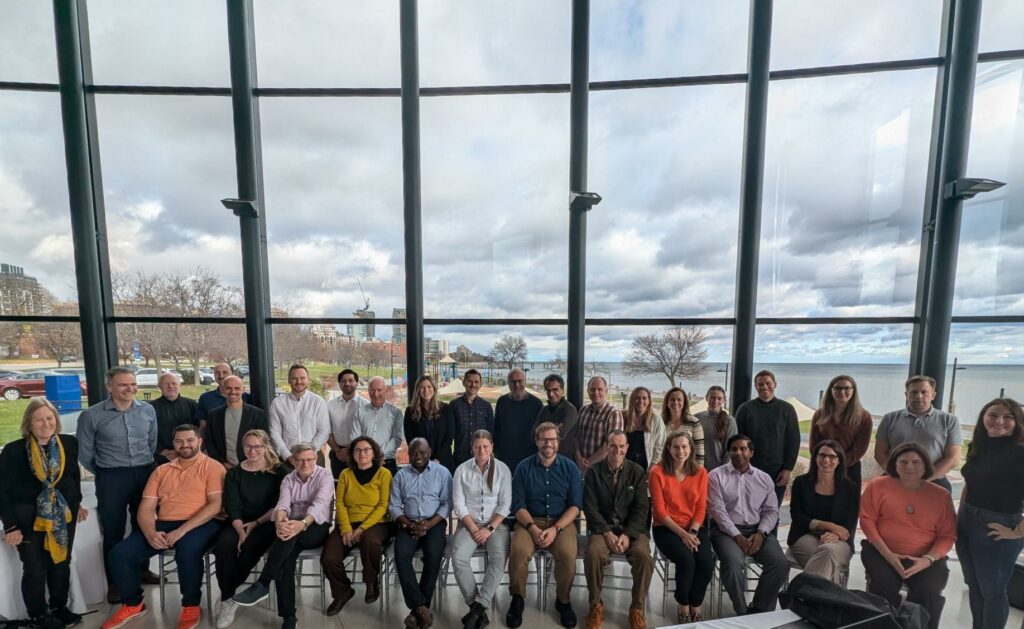
The two-day meeting included experts from the UK, Germany, Ireland, Australia, Spain, Israel, the US, and Canada, along with researchers from institutions like CIHR-IMHA, Johns Hopkins Bloomberg School of Public Health, and Barcelona Institute for Global Health.
Accurate, real-time movement measurement in aging populations can significantly help manage mobility as a “6th vital sign.” However, rapid technological advancements require international cohesion on data usage. The event facilitated expert knowledge exchange and collaboration to create an internationally applicable consensus document, which will help ensure that research findings are reliable and comparable across different studies and populations.
This work has significant implications for measuring mobility, a critical component of healthy aging, across global research and public health platforms. “The insights and connections gained from this meeting will play a crucial role in shaping the next generation of wearable technologies and their applications in aging populations,” emphasizes Dr. Beauchamp, who is also an Associate Professor in the School of Rehabilitation Science in addition to her role with the MIRA | Dixon Hall Centre.
“As the population continues to age, leveraging advanced technologies to help monitor the health and functional ability of aging populations around the globe is an urgent priority.”
Marla Beauchamp, Director of the MIRA | Dixon Hall Centre
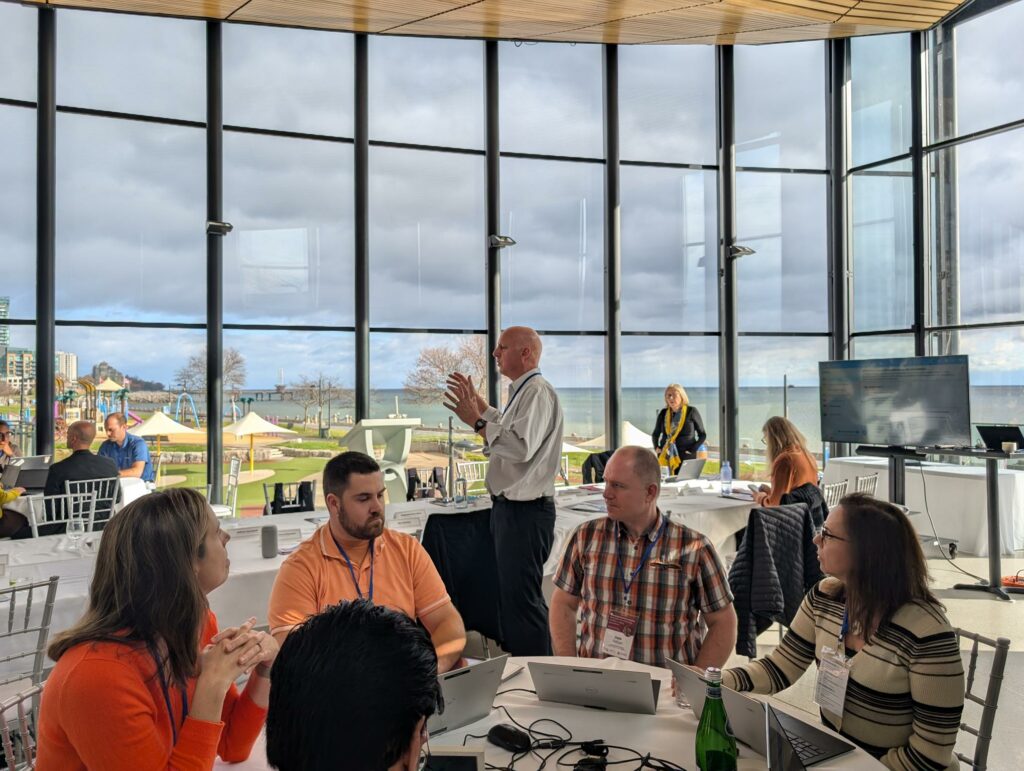
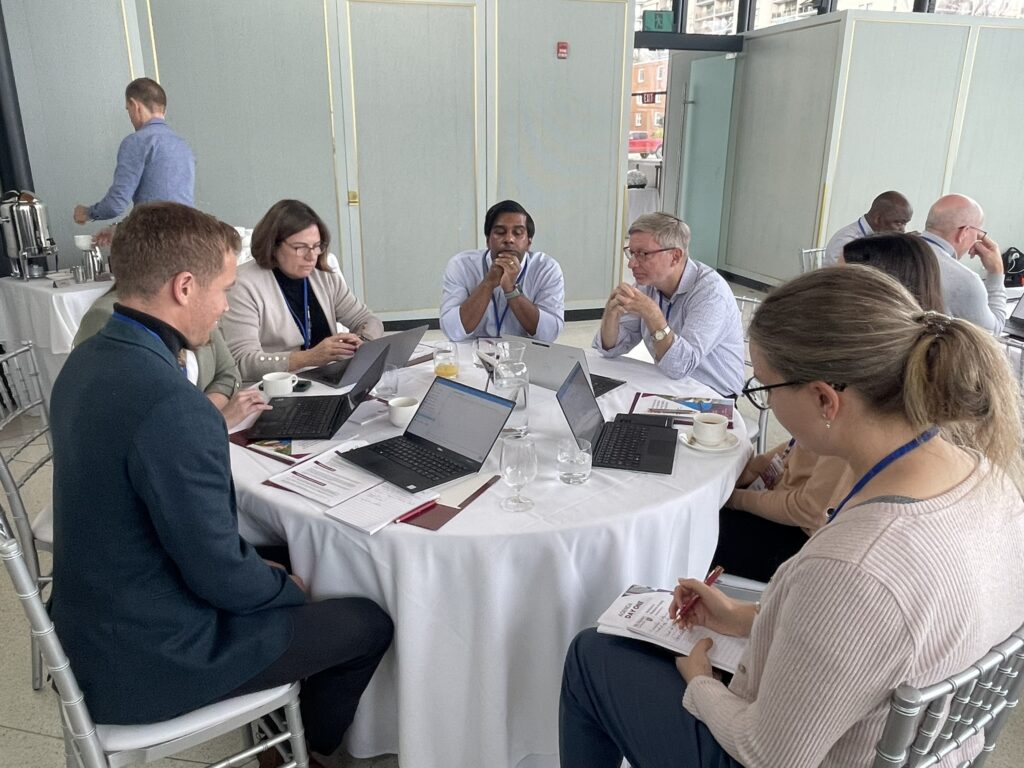
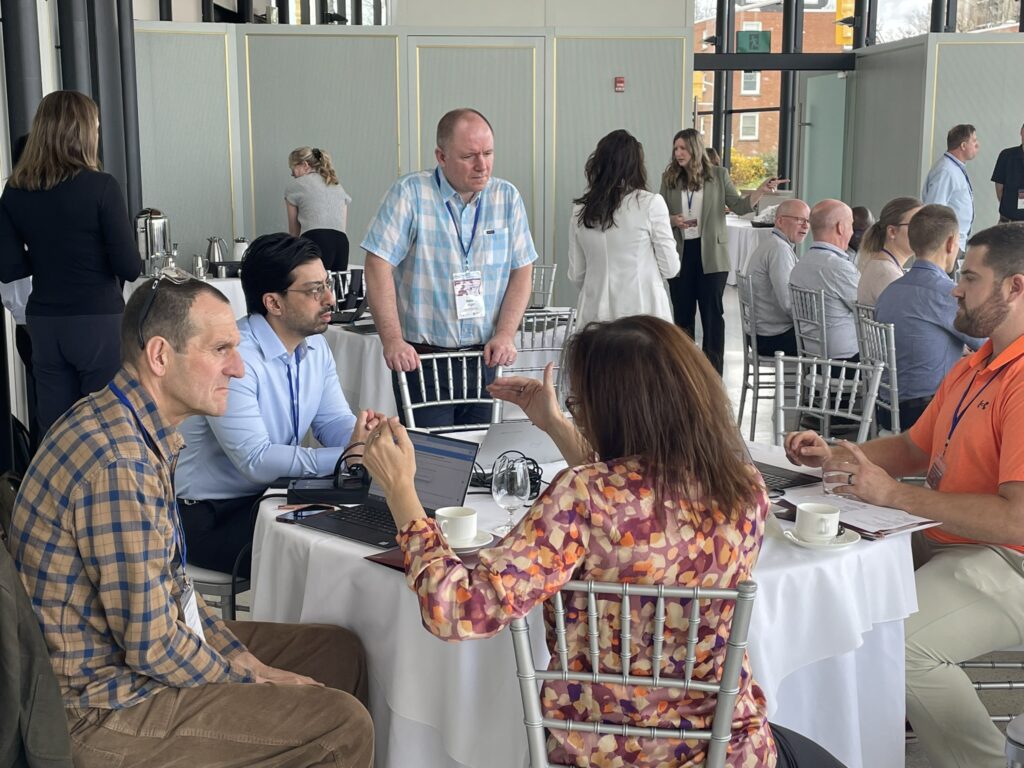

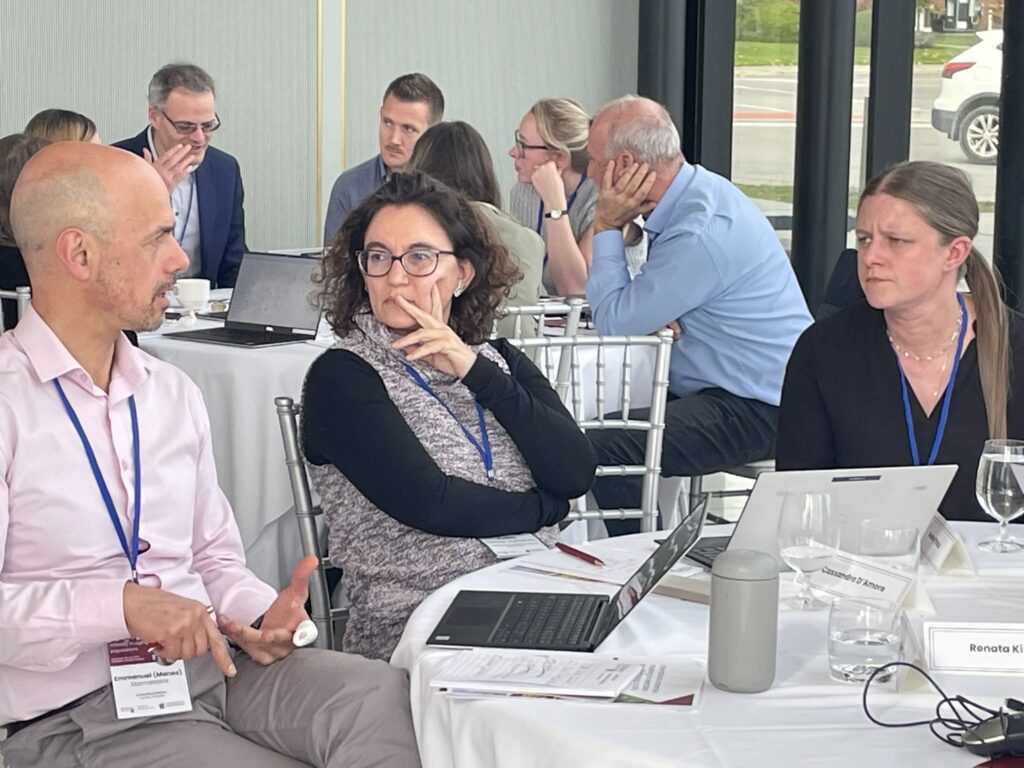
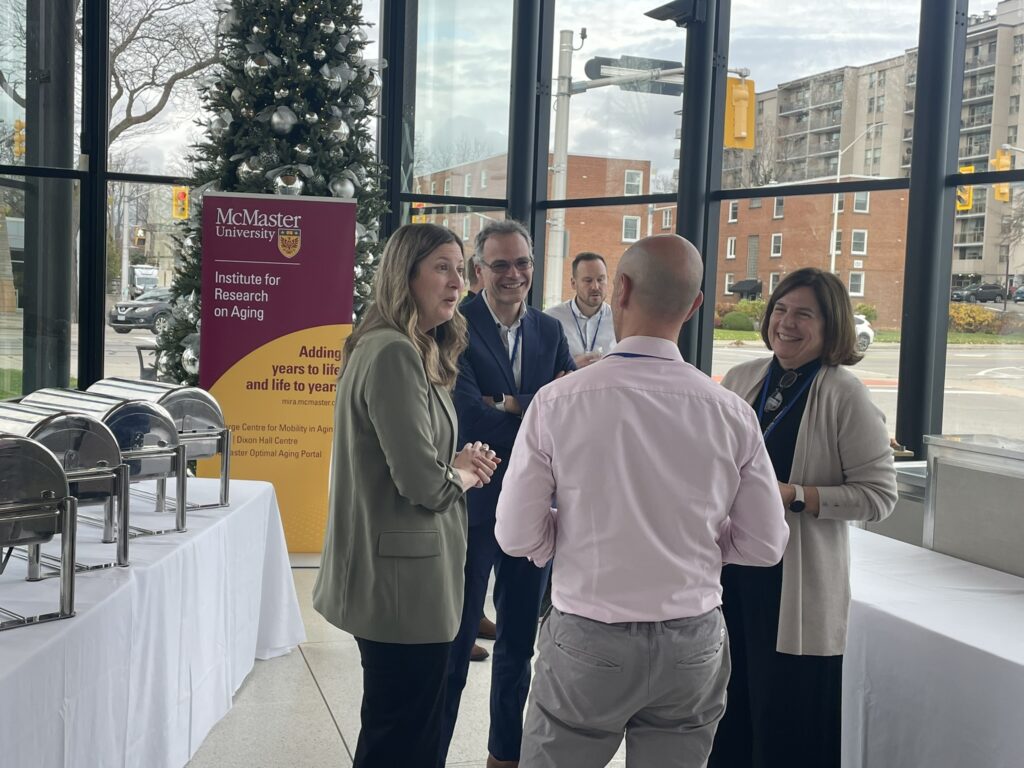
Facilitated by Eric Lockhart (Queens University) and Julie Richardson (McMaster University), participants engaged in lively discussions and breakout groups over two days. They explored big questions on how wearable technology can be used in older populations, including critical measures to characterize mobility subdomains and best practices and recommended methods for use of wearable technologies in older populations. The meeting also aimed to identify knowledge gaps and research priorities for the future of the field. Facilitators included a team from McMaster Monitoring my Mobility (MacM3), one of MIRA’s Major Programs of Research.
The international consensus statement emerging from this event will mark a significant global collaboration to enhance older adults’ quality of life through innovative technology. The consensus meeting deepens the shared research focus of McMaster and the University of Birmingham, emerging from connections forged through the “A Tale of Two Cities” project funded by the BIRMAC Project and Ideas Fund. This initiative, supported by the UK ATTAIN Network, is the latest in a series of research collaborations developed in partnership between McMaster and the University of Birmingham to understand the ways that built environment, cultural and societal factors impact mobility and aging.
“There is a strong focus on using wearable technology to measure mobility in aging populations. MIRA is taking a leadership position along with our international partners to reach consensus on a set of validated metrics for all domains of mobility.”
Parminder Raina, Scientific Director of the McMaster Institute for Research on Aging
The successful International Consensus Meeting on Wearables for Measuring Mobility in Aging Populations strengthened international ties and paved the way for future research. MIRA and its partners are committed to continuing this work and fostering a global community of researchers dedicated to improving the health and mobility of older adults. This international consensus meeting marks the beginning of important work building a future that will improve the health and mobility of older adults living in Canada and abroad.
